You don't have to be Irish to enjoy the craic at Wigan's Brian Boru club
and live on Freeview channel 276
Many hundreds turned out for the borough’s only St Patrick’s Day parade on Sunday, but this is the tip of the iceberg when it comes to the town's many links with the Emerald Isle.
The focal point is the Irish club in Bryn Street, Ashton-in-Makerfield. The club itself goes back all the way to 1886, when it was formed by Irish immigrants working in the Lancashire coal industries. The Brian Boru was the cultural hub for the local Irish community and created a safe atmosphere for Irish families to get together and enjoy each other’s company.
Advertisement
Hide AdAdvertisement
Hide AdOver its 137-year history, the club has been the beating heart of what is known as the "Irish diaspora" with generations of Wigan families celebrating birthdays, weddings, baptisms and of course St Patrick’s festivities.
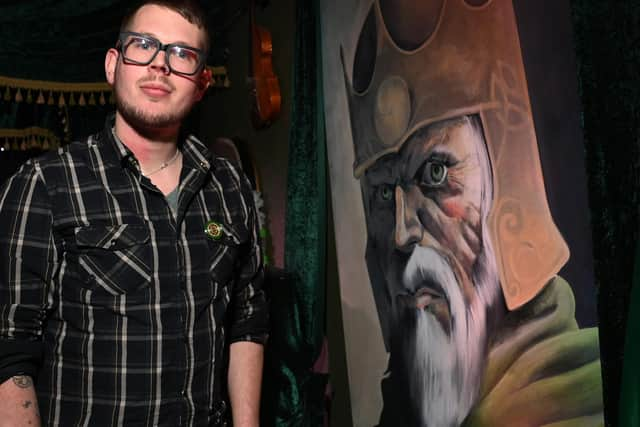

Although a members' club, it welcomes anyone who wants to attend its wide range of events, including traditional Ceili dance evenings and live Irish sport, karaoke afternoons and the Celtic Soul club.
The current club president is Danny Mann, who was born and bred in Ashton and doesn't have a trace of an Irish accent - but can trace his family back to Ireland over several generations.
Danny, 65, said: "I can proudly say that my family have been members since my Irish grandparents arrived in Ashton, in 1918.
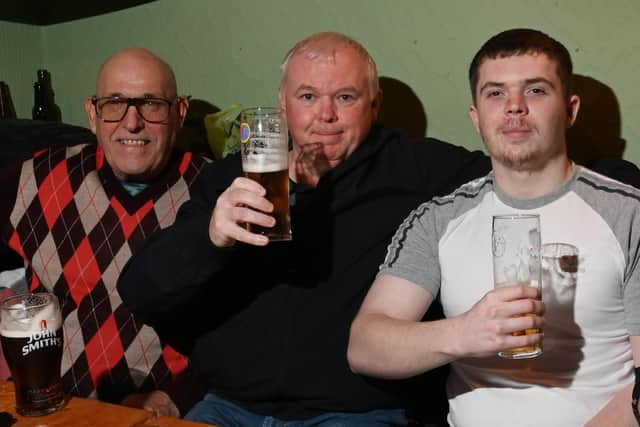

Advertisement
Hide AdAdvertisement
Hide Ad"Since then, we have been ever present as a family in the club. My mum, Mary Burke, was originally from Galway and was a key part of the ladies section for many years, and my aunts and uncles were also regulars.
"My own children took part in music and dance classes, and their children are frequent visitors to this day."
As with many other places, the first Irish began settling in Wigan in the 1850s. They were fleeing the devastating potato famine then wreaking havoc in many parts of the country, where peoples' livelihoods were still totally dependent on the soil.
Many were also attracted to escape poor conditions in their home country to come and work in the pits and coalmines located around the Wigan borough. For example, of the 76 miners who lost their lives in the 1908 Maypole pit disaster in Abram, a large proportion were Irish.
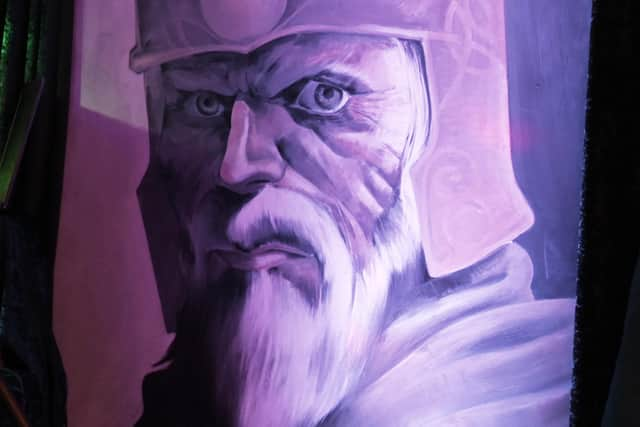

Advertisement
Hide AdAdvertisement
Hide AdThe Brian Boru Irish club was initially established in 1886, and operated out of a number of different locations - mainly upstairs rooms in pubs - until it opened its own premises in Ashton-in-Makerfield in around 1910, where it has remained ever since.
It was named after the first Irish king to unite the country under one kingdom during his 12-year reign (1002-1014), and there is a big portrait of him on the stage. He is widely regarded as one of the most successful and unifying monarchs in medieval Ireland.
Danny takes up the story: "The Irish have been around a long time in Ashton. I was born and bred here and brought up in the local area known as 'Little Ireland' centred around Lily Place.
"It was a large population in a fairly small place. The Irish club is part of the IDL (Irish Democratic League), which is the governing body for Irish clubs throughout England. The IDL was formed because there was a lot of prejudice against the Irish at the time. They needed to keep together on a national basis.
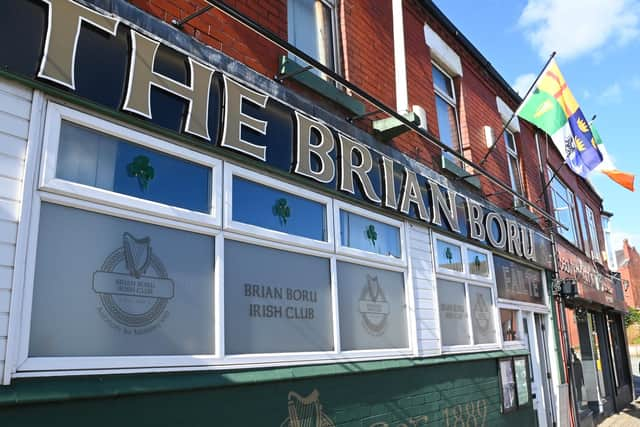

Advertisement
Hide AdAdvertisement
Hide Ad"We strive to keep the Irish culture alive, making people aware of their own Irish background."
The club's constitution states its objective as being to promote Irish culture, music, language, dance, sport and heritage. Its committee is made up of hard-working and dedicated volunteers, and the club receives a modest annual grant from the Irish government of around £10,000, which is matched by its own fundraising efforts.
The events tend to be concentrated at weekends, although the club also runs music and dance lessons during the week.
Its big events are the four-times yearly Ceilis, which attract people from across the north-west, including St Helens and Warrington.
Advertisement
Hide AdAdvertisement
Hide AdDanny added: "We are a members' club so we try to provide for our members, but we are open to anybody and everybody. There's no discrimination, prejudice or sectarianism. It's got an Irish theme and we try to encourage anything to do with the Emerald Isle, but we've had to diversify to keep the club open, with Northern Soul nights once a month to celebrate the famous Wigan Casino."
Garry Lally, who is cultural development officer at the Brian Boru club, said: “We are an inclusive club, predominantly Irish, but with a huge diaspora of Anglo/Irish, and other nationalities, among our members.
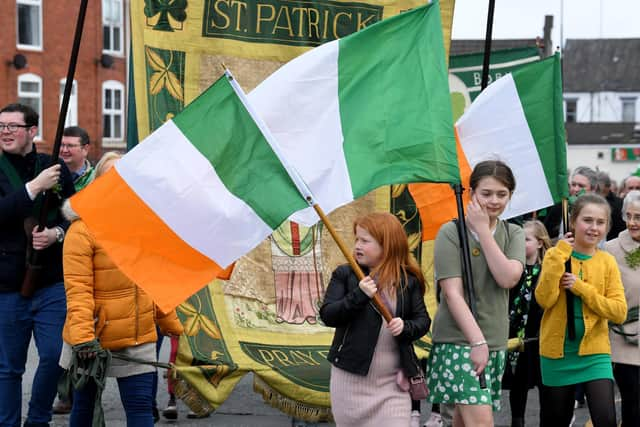

“The club is voluntary run by our hard-working and dedicated committee and to this day, we still aim to provide the warm welcoming atmosphere of a traditional Irish club. This includes weekly music and language tuition from our Comhaltas branch (an organisation devoted to the promotion and preservation of Irish traditional music, song, dance and language), which is now in its 51st year, along with Irish dance and activity workshops from our cultural officer and committee.
"We also have weekends brimming with entertainment from traditional Ceili dance evenings and live Irish sport, karaoke afternoons and our Celtic Soul club, crafting clubs and family movie evenings.”
As the club's regulars say - "you don’t have to be Irish to enjoy the craic at the UK’s oldest Irish club."
